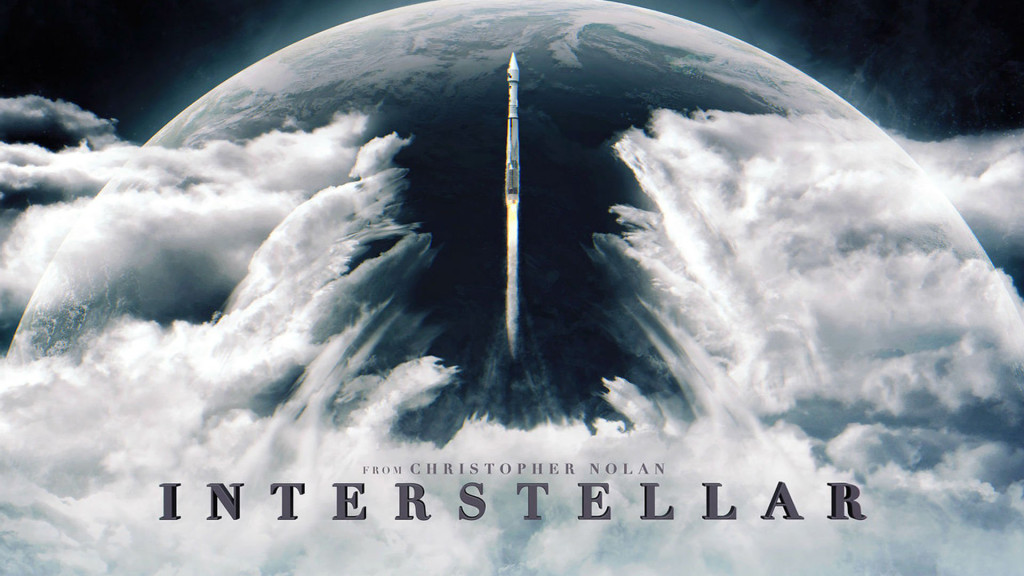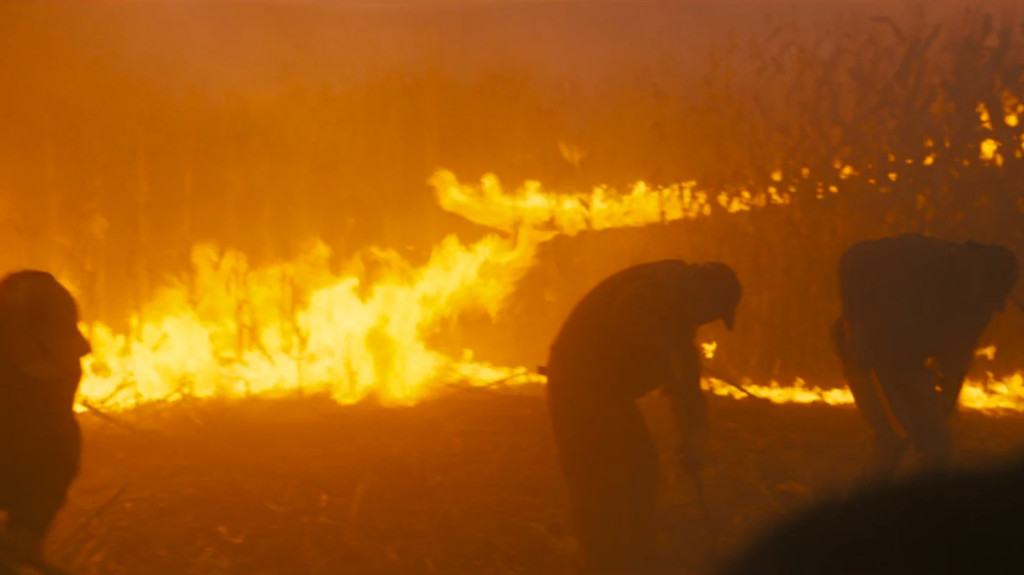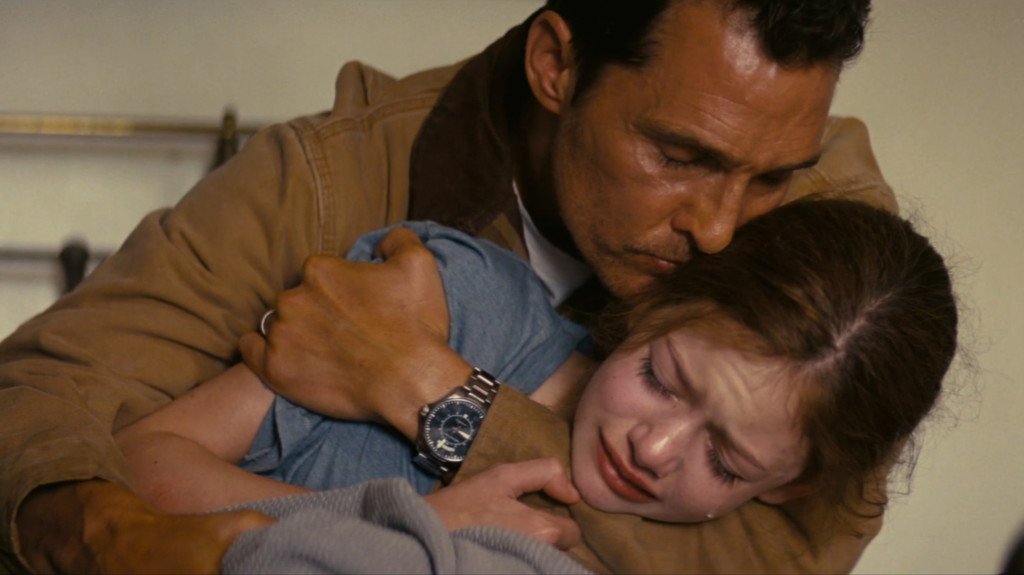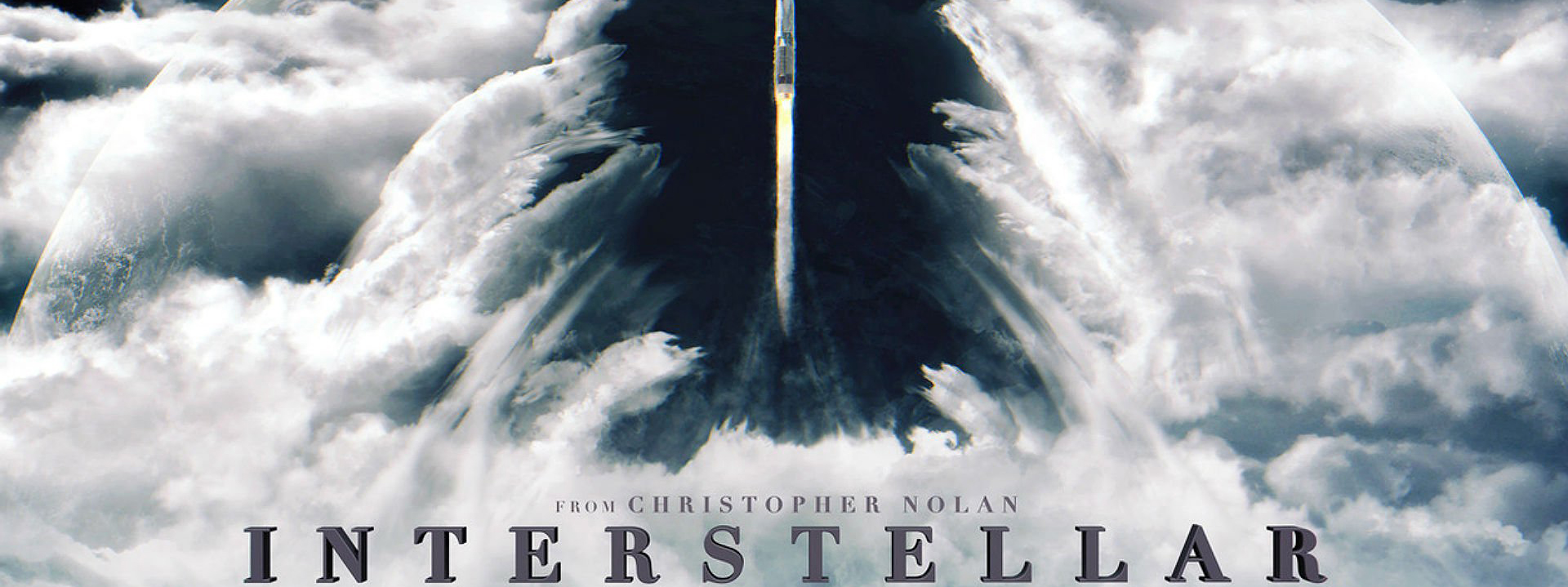
Never before in my life have I had to be this critical of a Christopher Nolan film. I’ve had problems with his films in the past, but I’ve largely considered them to be good or even great movies. Interstellar is the first Nolan film I’ve ever seen where its flaws have so greatly outweighed its strong points. This movie may work for some people, but it doesn’t work for me.
Quick summary of the plot: Matthew McConaughey plays Cooper, a former NASA pilot now working as a farmer on an Earth that is largely dying. Crops are dying from disease; Few students can hope college or a life outside of farming; Technology and innovation has largely been abandoned in the face of the growing food crisis and dust pollution. In the face of this, Cooper’s daughter Murph (played by Mackenzie Foy) discovers coordinates to a hidden NASA base planning to send a team to the stars in the hopes of finding a new planet for humanity to thrive on. As the last trained NASA pilot left, Cooper must abandon his family and join a team of astronauts on a quest to the stars to pursue the dim hope of saving humanity from extinction.
Let me get the positives out of the way first because they do exist and are worth mentioning. First, the movie is beautiful. In terms of cinematography, CG imagery, and set design, Nolan infuses this movie with a cold, stark beauty that effectively establishes outer space as the hostile, uncaring environment that it is. Hans Zimmer’s score is powerful and affecting, and occasionally adds some level of weight to several scenes. The acting is, across the board, stellar (excuse the pun). With a great stable of actors like Michael Caine, Jessica Chastain, Matthew McConaughey, Anne Hathaway, Matt Damon, Casey Affleck, and Ellen Burstyn, you will not be disappointed in the performances of anyone in the cast. As a sci-fi film, it is filled with interesting ideas about the relativity of time and space, the nature of the 4th and potentially the 5th dimensions, and the possibilities of space colonization to the future of mankind, as well as the potential risks of overpopulation and exhaustion of resources for man’s future on Earth. All of these elements together could make for a truly great sci-fi epic. Unfortunately, Interstellar’s flaws so greatly overshadow these strong points, that it makes it at most a decent film, or in my case, an infuriating film.

Biggest criticism first: this film is OPPRESSIVELY long! At 2 hours and 48 minutes long, this film tested my patience like no other film before it. I have watched long films before, and often enjoyed them a great deal, but this film did nothing to justify its length. Huge stretches of the movie are just endless exposition about the different scientific phenomena that are being seen or experienced or, worst of all, about the emotions that we are supposed to be feeling at these scenes. Nothing does more to disengage me from a film than to TELL me what I am supposed to be feeling, either because I can figure it out for myself or I simply do not feel these emotions and thus despise the movie for simply trying to shove them down my throat. As stated above, the actors are all top notch, and are trying to deliver good performances, but the script and the dialogue are so full of dry philosophizing and exposition that the movie simply feels cold, lifeless, and sterile. If that was the intent, then the movie achieved it, but for a film that spends so much time discussing the importance and meaning of humanity, there is precious little of it in this film. The end result is a film that feels like it has little to no interest in pursuing its own plot and wants to simply discuss its ideas without really having these ideas affect the characters and help tell the story. This is supposed to be a movie, not a 3 hour long physics lecture.
No matter how good McConaughey and his daughter are in the scenes they share, it can’t save this movie from poor characterization. The scenes where decades have passed on Earth without Cooper aging, and he has to see that his daughter is now as old as he is should be more affecting than they are, but these scenes require a level of characterization and emotional investment that the film simply lacks. None of these characters have any identity to them beyond basic archetypes. Cooper is the hard-working, smart, everyman father who nobly sacrifices his time with his family for humanity’s future. Hathaway’s Dr. Brand is the focused on logic scientist who gets too emotional and irrational under even the most slight of tense circumstances. Murph is the heartbroken little girl who feels abandoned by her father and only truly pursues her stated goal of helping to save the Earth when the movie contrives a way for Cooper to convince her he always loved her from beyond time and space (I am so not kidding). These characterizations are not inherently bad, but without good dialogue and proper emotional arcs for the characters in the script, it all ends up feeling hollow. In fact, this film’s script is such a detriment to it that it forces me to reevaluate how good the writing in other Nolan scripted films are. Is Memento still as well written as I remember it being? Is The Dark Knight truly an effective emotional film? I now have to revisit these films and find out.

On the technical side of things, the Hans Zimmer score in this, while occasionally effective, was often poorly used. A film’s score can often help affect the audience and convey the emotions from the film. In the case of this film’s score, all it conveyed was annoyance. Firstly, the score had little to no identity or variety in its music choices so scenes that are supposed to be emotionally effective all blend together and scenes of epic vistas and action all get swallowed in a sea of white noise. The sense of annoying white noise is amplified by the fact that the film’s score is often way too loud and at particularly inappropriate points. There are many points during the movie where the dialogue is drowned out by the score, which consistently hurts the film because there are scenes where I feel like the dialogue is important either for plot or characterization where I have no idea what is being said or why because the score is overpowering everything. With the abundance of loud booming scenes, you would think that there would be quiet moments to balance and even out the tone of the film, but the few there are often hours apart. By the end of the film, I felt like an old man holding his hands over his years yelling at his obnoxious neighbors to turn down the noise.
Interstellar feels like a film that suffers from having only one vision at the helm. No one went up to Nolan and told him that he needed to edit down the film’s length or minimize the film’s score in some scenes so that the effort put forth to learn, rehearse, direct, and record dialogue is not rendered meaningless. At the end of it all, good ideas, actors, and scenery are wasted on a bloated, uninteresting script in a film that outstays its welcome by a good hour at least. This film is a warning that, just because a director has made a few excellent films in the past, does not mean he should be given free reign to do whatever he wants. The end result of such vanity projects is films like Tim Burton’s bloated, confusing, and tiring Batman Returns or Zak Snyder’s boring, sexist, pretentious, confusing slog of a film, Sucker Punch. Someone needs to rein Nolan in before he makes a truly bad film.





Add comment